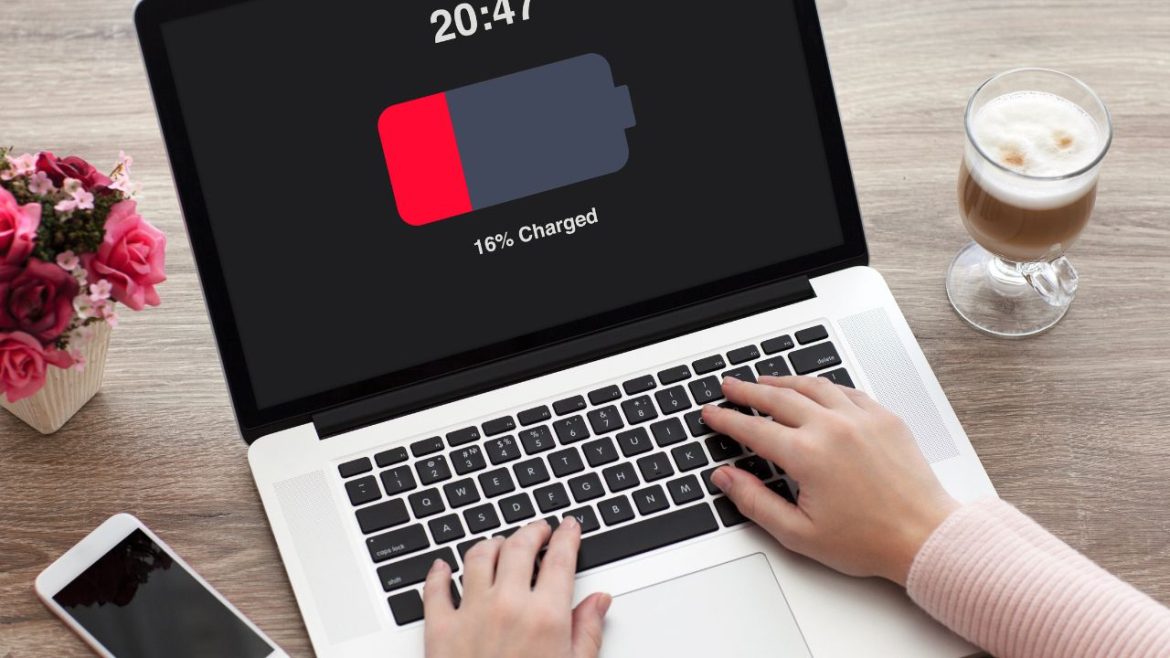Laptops are now required devices, whether for work or leisure, and a battery is one of the most critical components that make these devices run.
If you’ve ever observed your laptop getting hot, especially while in the process of charging or while dealing with a lot of use, then you may be dealing with a familiar problem that’s bound by voltage vs heat in laptop batteries.
Before Asus Laptop Battery Replacement, knowing how voltage influences battery heat can not only keep your laptop performing at its best but also keep that same laptop safe and running for a longer duration.
How Laptop Batteries Work?
Li batteries are mostly used in new Asus laptops because of their energy density, relatively lightweight, and long lifetime. These batteries are made of cells that have stored energy and are able to release it when we want to use it. Each cell is made up of two electrodes: a carbon anode and a lithium cobalt oxide cathode, which are separated by the electrolyte. When you charge, lithium ions move from the cathode to the anode to store the energy. These ions move back to the cathode and discharge when they do so, so they power the laptop.
This process is heavily dependent on voltage. In simple terms, voltage is the electrical potential difference (driving force) between those two electrodes, impressing the movement of lithium ions. The faster you move ions, the higher the voltage, which means the more power you can give the device, but that can also create heat. This heat, as we continue to go deeper into it, is the biggest thing to worry about when it comes to battery safety and performance.
Why Does Voltage Cause Heat?
To understand why voltage causes heat, it’s essential to grasp the relationship between power, current, and resistance. Power is the rate of energy use, current is the flow of electric charge, and resistance opposes that flow. Higher voltage increases the current through the battery’s cells, which, when combined with internal resistance, generates heat.
The formula P = I²R illustrates this, where power (heat) increases as current and resistance rise. While some heat is normal, excessive heat can indicate problems like inefficient charging or internal resistance.
How High Voltage Can Affect Battery Health?
Laptop batteries are designed to work with a range of voltages, but running them consistently at higher voltages causes problems. Batteries accelerate chemical reactions in their cells when full voltage is reached, and they are charged. This further raises the internal pressure and temperature that, with usage, can cause damage to the battery.
Thermal runaway is one of the main considerations, with it being introduced as a self-reinforcing cycle that increases heat generation and deepens the cycle. Unless controlled, thermal runaway can cause battery swelling, leakage, and even fire. To help prevent this, most modern laptops include built-in safeguards to regulate voltage when charging and discharging so as to prevent overheating.
Voltage and Fast Charging: A Double-Edged Sword
Fast charging allows laptops to quickly reach significant battery levels but often operates at higher voltages, generating more heat. While thermal management helps control this, frequent fast charging can strain the battery, leading to faster degradation, especially when used for heavy tasks like gaming or video editing during charging.
Tips for Managing Battery Heat
Given the link between voltage and heat, there are several practical steps you can take to manage battery heat and extend the life of your laptop battery:
- Keep battery charge between 20% and 80% to reduce stress and overheating.
- Use your laptop on flat, hard surfaces for proper airflow and ventilation.
- Avoid using or charging your laptop in direct sunlight or extreme temperatures.
- Limit heavy tasks like gaming or editing while charging to reduce heat buildup.
- Regularly monitor battery health and temperature using built-in software for early issue detection.
When to Worry About Heat?
While laptops can get a little warm while using or charging, too much can mean it’s time to act. If your laptop is too hot to touch all the time or continues to swell and pick up strange odors and performance problems, it’s time to investigate. In extreme cases, professional repair becomes a necessity; in some other cases, this might mean replacing the battery.
Conclusion
One of the most critical factors in how laptop batteries operate is voltage, but it’s also directly involved in the production of heat. Laptop batteries are made to operate at many voltages; however, if too much heat is generated from a too high voltage, then it will cause long-term damage or create safety hazards. Knowing this link between voltage and heat makes it possible for users to make practical makes to manage battery temperature, prolong battery life, and safely use their batteries. Proper charging habits, managing large workloads, and keeping your laptop in a cool environment play a great role in protecting its battery life.
